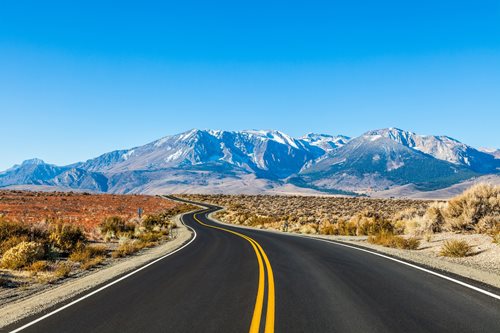
Truck drivers are always concerned about their tires, and rightly so, but what about what’s under your tires? Everyone complains about the conditions of bad roadways, but how much do you know about our roads?
The oldest constructed roads date back to 4000 B.C. in Mesopotamia. The Sumerians built roads using mud bricks and bitumen, which is an asphalt of Asia Minor used in ancient times as a cement and mortar. Bitumen can still be found in use for our modern roadways.
It would be centuries later before a couple of Scottish engineers designed roadways with a raised center for drainage. Thomas Telford and John Loudon McAdam are credited with the first modern roads in the late 1700s in Europe. It wasn’t until the late 1800s before America saw its first paved roads.
Today, American roadways are much more than just bricks and bitumen. Roads are now built with more purpose, different materials and for specific applications. Heavily trafficked areas will usually be made of concrete while asphalt is usually used for lighter traffic areas. Asphalt roads still use bitumen as a binding agent just as it was used 6000 years ago.
In recent years, experiments using recycled plastic bottles to replace the bitumen binding agent have been underway. Local roads have been paved with recycled plastic to test the durability and longevity. Just recently, Butte County California paved the first mile of a state highway in the U.S. with recycled plastic.
The new recycled “plastic” roads are said to be stronger than the previous roads and also said to last much longer. Plastic has found its way into much of our daily lives and now it seems we will be driving on it too.
As technology marches on, we see many changes everyday, but who would’ve thought that the water bottles so many people discard on our roadways could actually become part of that road? If you need another reason to properly dispose of your garbage, now you can help to repave our roadways in the future.